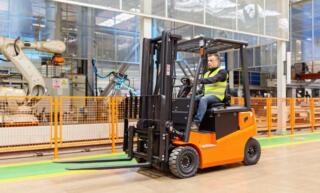
6 Tips To Boost Work Productivity
Work productivity is becoming a key metric for small businesses. Studies conclude that a lot of time is wasted in business daily in the U.S. This is time that could be dedicated to supporting your business’s goals and values and taking you further down the path to success. The good news is there are ways to reclaim this time, and they are involved in ensuring your small business is as efficient as possible. Read on to find out what they are.
Provide your employees with motivation
Often the whole structure of a business with owners and employees can negatively impact work productivity. This is because employees are expected to toil mainly for the financial benefit of the owners, something that is seen as unfair and can drain motivation and morale.
However, this situation can be ameliorated by finding ways to link the business’s success with the success of individual employees. The most straightforward way of doing this is often offering a bonus system. This means when employees, either as individuals or as a team, hit specific targets for the company, they are rewarded with a cash bonus for their efforts. This approach keeps employees motivated enough to spend their time most efficiently because they can see that their performance is directly linked to their rewards.
Train your team to be autonomous
Employee training is always essential when running a small business, however, when it comes to working productivity, there is a particular type of helpful training. This type of training is about encouraging autonomy in your employees and providing them with the support they need to self-manage. Doing this can make your business far more efficient because they will not have to stop work and go to their superiors for every little question or doubt. Instead, they will be able to make decisions based on the values and goals of your company.
It is worth noting, however, that encouraging such self-reliance in your team can be lengthy. While employees need to get used to making such decisions, your leadership team will also need to get used to trusting them and giving them the freedom to operate autonomously.
Limit the products you offer
It may sound counterintuitive, but limiting your business’s products can make all the difference when it comes to efficiency in your business.
This is because, with a limited range of items to make and sell, your employees will have greater expertise and focus more on these items. Although for this to work effectively, you have to choose the most popular items with your customers.
Use outsourcing to your advantage
Outsourcing is another way to ensure your small business runs as efficiently as possible. After all, asking your staff to complete a task they are not experts in will take much longer than outsourcing to someone who does that same task day in and day out. Indeed, by outsourcing, you can protect your employees’ time and make sure they use it on tasks they are well qualified to perform.
Minimize disruptions
From meetings to building work, ensuring that things will be disrupted only for the minimum amount of time is crucial for efficiency. This may mean comparing online meetings, standing meetings, or time meetings.
Alternatively, in the case of making changes to equipment or manufacturing processes, it means finding a way to get the changes you need to be made while reducing downtime. For example, if you want to make alterations to a pipeline system in your business, finding a Welding Services specialist can offer hot tapping to solve your problems. This is because it is a process where they can make changes to a pipeline system without shutting the entire system down, which can result in a great deal of downtime reduction for your business.
Automate tasks where possible
Automation is also an effective method of ensuring your work productivity is as efficient as possible. There are two types of automation you may wish to consider: physical automation and computer automation.
Physical automation is where tasks in the real world are taken over by production lines or robotics, allowing them to be done without any ( or with very little) human input. The benefits of this type of automation include faster and more accurate processes, which can very quickly increase efficiency.
Computer automation is where information technology tasks are programmed to run independently of human input. Again, this type of automation can save businesses considerable time and free up their staff for more complex and critical tasks that will significantly impact their bottom line.




